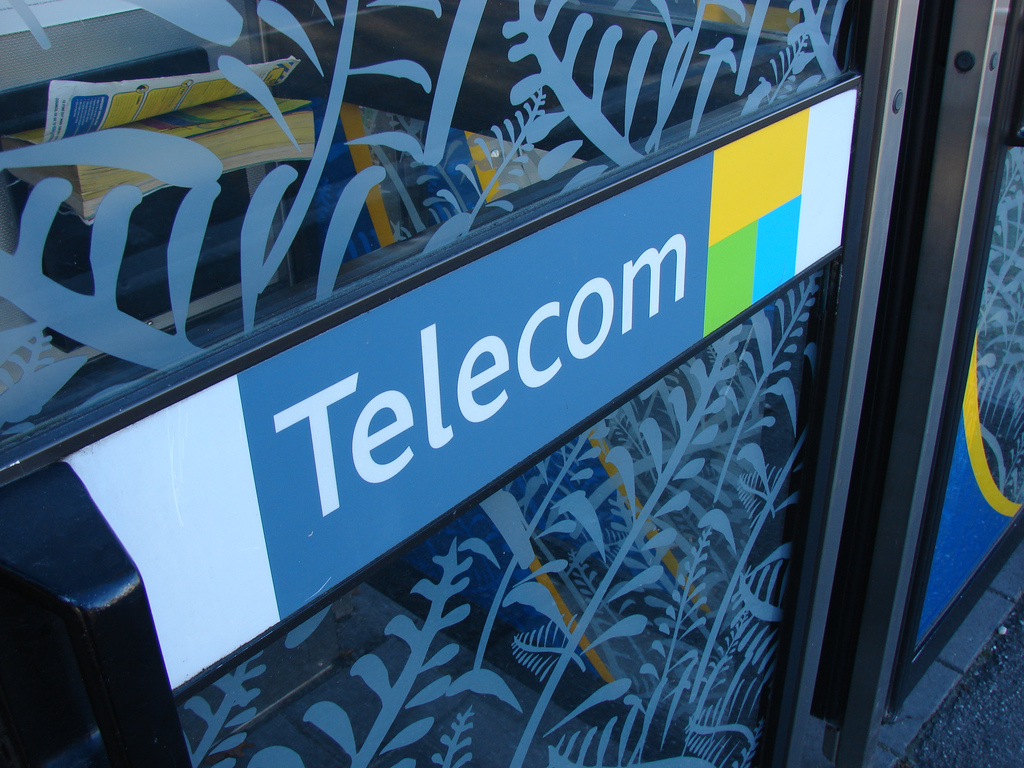While much of the focus of yesterday’s Rogers quarterly call was on the wireless sector (see part one on roaming rates), it should be noted that company executives indicated that consumer broadband Internet prices – which the OECD recently reported were among the ten most expensive in the developed economy world – will continue to increase. Moreover, the company called unlimited bandwidth offers “short-sighted” and recent price increases just one step in the efforts to monetize broadband services.

Telecom by yum9me (CC BY-NC-ND 2.0) https://flic.kr/p/53jSy4
Telecom
Rogers Reveals, Part One: Threat of Regulation Driving Down Roaming Costs
In 2011, the OECD released a report that found Canadians face some of the highest wireless roaming fees in the world. Some tried to downplay the findings – the National Post’s Terence Corcoran claimed that the roaming fees actually looked pretty cheap, while Rogers pointed to several packages that it said “would rank us among the lowest cost of countries surveyed.” Yet as regulators in other countries began aggressively targeting high roaming fees – EU costs have dropped 91 percent over the past six years given regulatory initiatives – Canadian companies apparently began to fear that similar regulations could make their way here. Indeed, according to Rogers, it was necessary to get “roaming in line” or face the prospect of regulation.
Nowak on the Not-So-Friendly Numbers at Telus
Peter Nowak debunks many of the recent claims from Telus on capital investment and pricing in the Canadian market, concluding that Canadian carriers rank first in the world in average revenue per user, third in profit margin, and some of the highest consumer prices in the world.
Moore’s Mission: Put Canada’s Digital Economy Back on Track
Appeared in the Toronto Star on July 20, 2013 as Will Cabinet Shuffle Help Put Canada’s Digital Economy Back on Track One of the headliners behind last week’s federal government cabinet shuffle was the shift of James Moore, formerly the Minister of Canadian Heritage, to Industry Canada. The Minister of […]
Competition Not Contracts: The Real Reason Canadian Wireless Prices Are on the Rise
This week, Telus and Bell announced new wireless pricing plans based on two-year contracts (Rogers has said their plans will be released shortly). Those plans – particularly those from Telus which seems to be taking its suggestion that Canada should be the most expensive wireless country seriously – feature higher prices, which some claim are the product of the shift from three-year contracts to what is effectively a two-year maximum under the new CRTC wireless code. The narrative behind these cost increases is that consumers are amortizing the cost of their device over a shorter period of time and therefore can expect higher monthly fees. This argument is perfect for the carriers as they get to blame the CRTC (and by extension, the Competition Bureau, consumer groups and consumers themselves) with an “I told you so” for the increased prices. Yet the higher costs are not strictly a function of shorter contracts, but rather a product of Canada’s uncompetitive marketplace.
Many other countries have two-year contracts with cheaper rates and bigger device subsidies. This is because consumer price is not primarily a function of contract length or device cost, but rather marketplace competition. For example, Spain’s wireless pricing has been dropping in recent months as their four major carriers find consumers more aggressively shopping for better prices or cancelling their wireless services altogether. In response, all four Spanish carriers are dropping prices to stop the churn and attract new customers. For example, BGR reports that Yoigo (owned by Telstra) has offered free iPhone 5’s on two-year contracts for as little as 25 euros (C$34) per month (the article emphasizes how competition through innovative pricing has led to profit declines at incumbent carriers). The decline in price is illustrative of why it is competition, not “regulatory costs” or device subsidies, that are the key factor to consider.
[Update 7/27: A commentator below helpfully points out an inaccuracy in the BGR article since the Yoigo price was for phone only and not service. A fuller comparison of the Spanish offer is as follows: Yoigo for 24 months of 25 euro phone + 25 euro service (unlimited voice + 1 GB data) is C$1636.24. Add another 12 months of service for C$409.56. Total three year cost is $2047.80. Bell’s current offer on an iPhone 5 with the same voice and data for three years is $179.95 for the phone, $35 for the activation, and $70 per month of the service for 36 months. Total three year cost (not including taxes) is $2734.95.]






